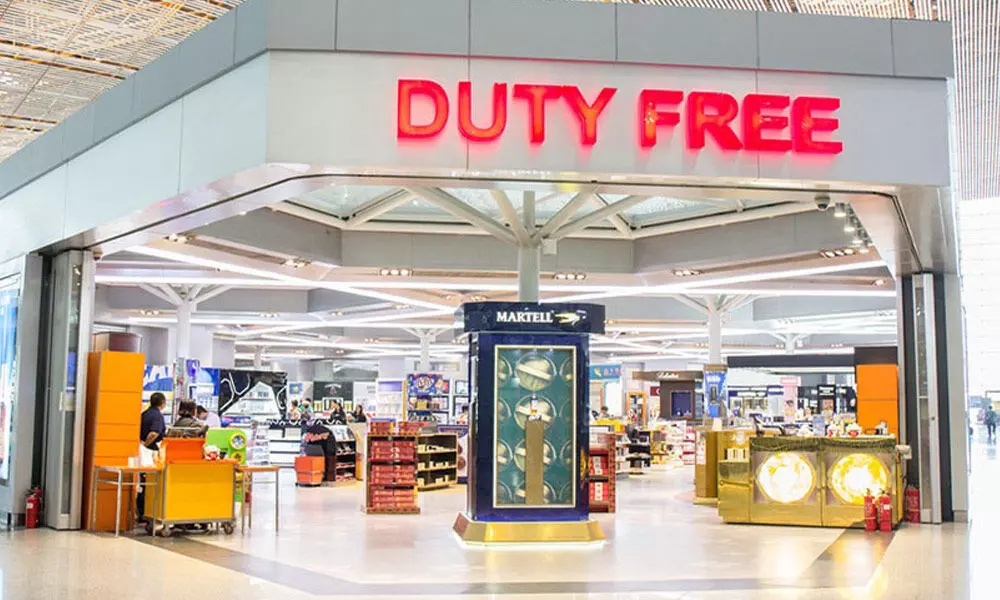Global duty-free retailing market to garner revenue of $139.4-bn by 2026
Organizations need to get innovative to ensure the continuation of their businesses. This is the opportunity for them to stop, assess their current set-up, and measure up for future innovations
image for illustrative purpose

The key strategies for digital transformation are driving customer experiences with customer data platforms and personalization. Tracking customer interaction at every touch-point within the airport, with the brands and their products enables better segmentation and predictive anal
The duty-free and travel retail market is projected to register a CAGR of greater than 7.5 per cent during the forecast period, 2021-2026, due to the growing demand for retail chains that offer luxury and premium brands of various products.
The low customer interest in shopping at airports is expected to restrain the growth of the market at these stores, owing reasons, such as lack of promotion campaigns at these stores and high prices of products. Several companies are partnering with duty-free stores to launch their limited or exclusive products, which is driving the market growth. By product type, the wines and spirits segment is expected to gain a major share during the forecast period.
The bulk of this industry's revenues comes from airports, however, duty free and travel retail is also available at border shops, onboard cruises and ferries in international waters, and onboard aircrafts during international flights. In some areas, such as non-EU Europe, Australasia, the Middle East and Latin America, travellers have the option of purchasing duty free goods upon arrival. This trend has become a fundamental source of income for airports. Moreover, duty free and travel retail generates necessary revenues for the travel, tourism, aviation and maritime industries. As per a report by Research Dive, the global duty-free retailing market is predicted to obverse significant growth and garner $139.4 billion by 2026 owing to the increasing tourism across the world, especially after the pandemic relaxes. Currently, duty-free businesses are altering their strategies to grab the attention of potential customers and drive in revenues even after the pandemic settles.
The following innovations need to be adopted by organizations and the travel industry in general to ensure the continuation of their businesses. Covid-19 has definitely pre-empted innovation, which was inevitable due to the 'more online interaction and less physical' preference of the millennials.
The key strategies for digital transformation are driving customer experiences with customer data platforms and personalization. Tracking customer interaction at every touch-point within the airport, with the brands and their products enables better segmentation and predictive analytics.
Dubai airport started the 'Click and Collect' initiative where customers can shop for products before travelling, provide their travel details and pick-up the products from the webshop.
To avoid physical contact and still ensure customer tries the product before purchasing, several tools are available in the market today. Brands have their own 'Virtual Try-on' tools and quizzes to recommend products to consumers.
To enhance customer experience and their safety, contactless payments at retail outlets will be the new norm. Technologies like NFC can help brands to enable this. Most of the consumers today are driven by the concept of loyalty. However, with the multitude of choices available (and especially just a click away), brand awareness – loyalty to a specific brand is difficult to maintain. In the travel industry, loyalty is incentivized mostly through rewards, based on a point system. Especially with the gap in duty-free stores and stores in the outside world, customers are not able to leverage their loyalty programs effectively either.
Technology can definitely be used to enhance loyalty for travellers. Also, it is important to understand that retaining existing customers is easier than acquiring new ones. Loyalty programs need to be designed after putting in thoughts on how to maintain the customer base and encourage repeat purchases. Marketing communications can be planned to let customers know what is on offer.
Super apps are the next BIG thing in the digital space. Especially with most consumers using multiple devices and multiple channels for varied needs – booking tickets, tracking status, tracking loyalty points for the airline, buying products, etc. If all these different apps used by the customer can be clubbed into one super app, the benefits will be immense. The customer can use the same app to book their ticket, check status (of flights or product deliveries), make a purchase of a product from the brand, and use the same app to track loyalty points (for the airline and the product purchase).
In summary, the above innovations need to become essential in organizations' standard operating procedures to ensure that they can survive the new normal post-Covid-19. As said by Albert Einstein - 'In the midst of every crisis, lies opportunity.' This is the opportunity for every organization to stop, assess their current set-up, and measure up for future innovations. It is possible that in the near future, a customer journey is well-connected and integrated - to ensure a seamless and safe customer experience.

